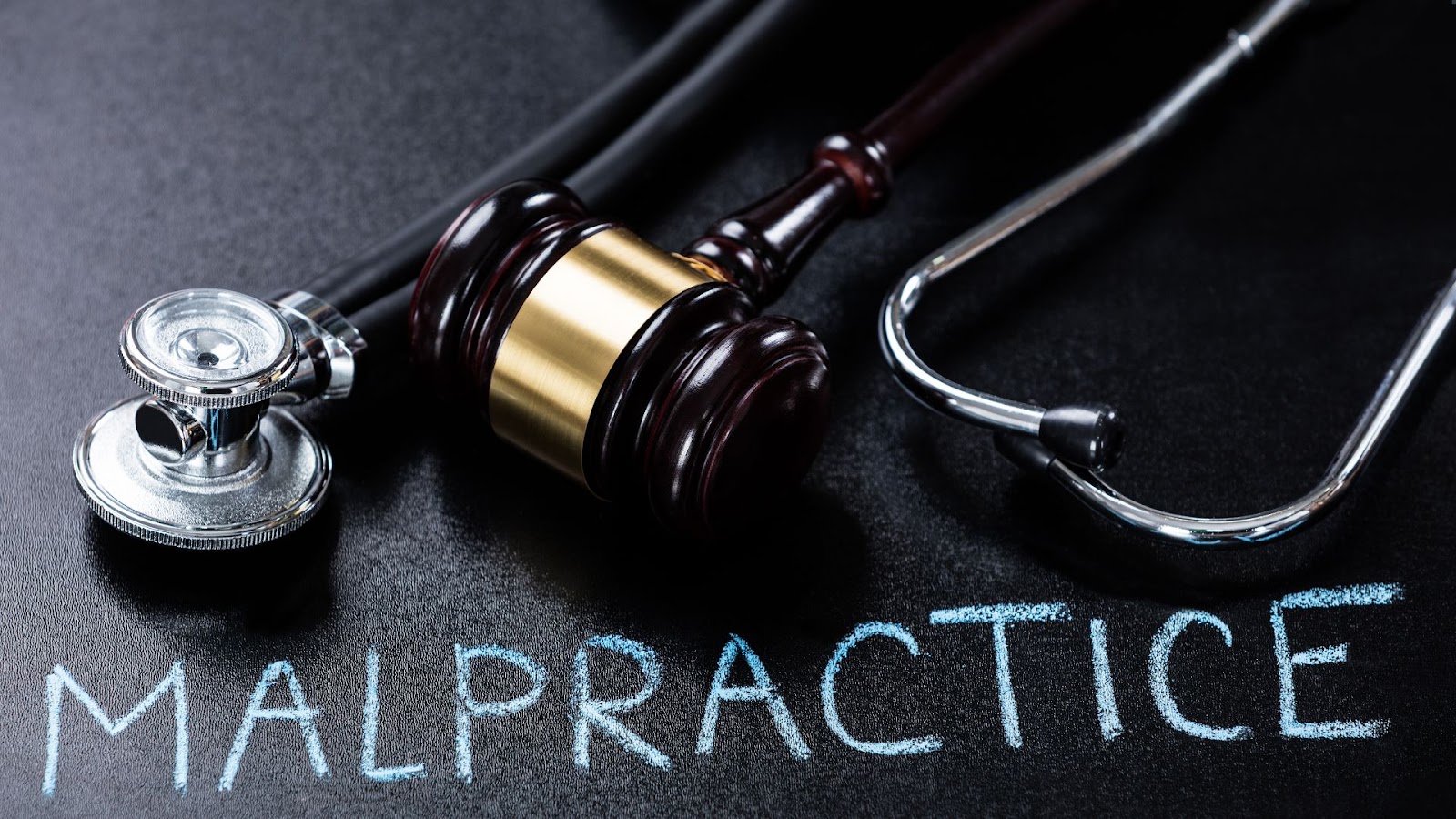Common Medical Malpractice Cases Explained
Updated on
Published on
We generally associate the hospital with getting better, not with being a place where you suffer harm. Unfortunately, many people do suffer harm there, and the fact that you are reading this guide could mean that either you or a loved one has suffered harm when seeking medical help.
Medical malpractice is the legal term used to describe harm suffered due to the negligence of health providers. These providers can be an institution, surgeons, doctors, nurses, pharmacists, or anyone else in that field. This guide looks into the different types of medical malpractice and can help you understand what types of medical malpractice you may be dealing with.

Misdiagnosis
Doctors do not always get the diagnosis correct. Still, a failure to get the diagnosis right doesn’t always mean there was malpractice. It only becomes a case of malpractice if the reason for failing to diagnose was a deviation from the standards of practice. Speaking to attorney Russell Berkowitz of Berkowitz Hanna Malpractice & Injury Lawyers can prove to be useful during this time.
For example, a patient can present headaches and dizziness, which can be symptoms of many ailments, including stroke. The doctor runs tests for every other condition, but not for a stroke. They then go ahead to treat the patient for something completely different when the issue is a stroke.
Suppose the patient's condition deteriorates as a result, and the patient suffers permanent damage. The failure to test for stroke indicates a deviation from the expected standard based on the symptom, creating grounds for a valid medical malpractice claim.
Surgical Errors
Surgical errors are also pretty common and can take many forms. They can involve operating on the wrong part of the body or conducting unnecessary surgery. They could also involve operating on the right part of the body, a necessary surgery, but following poor protocol, leading to something like having an instrument left in the patient's body.
There have also been reported cases of doctors operating on the wrong patients due to poor communication or identification problems. All these point to one thing: negligence, making such situations cases of medical malpractice.
Medication Errors
Medication errors, which occur when patients receive the incorrect medication or dosage, also fall into the category of medical malpractice. Often, these mistakes spring from miscommunication, illegible handwriting on prescriptions, confusion between drugs with similar names, or simply overlooking a patient's drug allergies or existing medications, which could lead to severe interactions.
The impact can range from minor discomfort to more critical, sometimes life-threatening conditions. These errors reflect a lapse in the care that healthcare providers are entrusted to deliver, highlighting the need for rigorous checks within pharmaceutical protocols.
Birth Injuries
During childbirth, any harm that comes to a baby or mother due to medical negligence fits into the birth injuries category of malpractice. These injuries can occur from improper handling or monitoring during delivery, failure to anticipate birth complications, not effectively addressing distress signals on fetal monitors, or errors in using tools like forceps or vacuums.
Such incidents might lead to conditions ranging from nerve damage and fractures in infants to severe postpartum bleeding in mothers. Often, these traumatic outcomes stem from poor decision-making or inadequate skill, casting a shadow on what is supposed to be a joyous occasion.
Navigating the Complexities of Medical Malpractice Cases
Tackling a medical malpractice case is not for the faint-hearted, given its intricate nature involving detailed medical knowledge and legal nuances. This complexity means partnering with a skilled lawyer is essential.
To choose the right attorney, look for someone with a robust track record in medical malpractice, clear communication skills, and an understanding approach to your situation. Consider also their availability to handle your case personally rather than passing it off to less experienced associates.
A specialist in this sector can comprehend medical language, negotiate paperwork mazes, and aggressively argue for you—an vital ally in these trying times.

Conclusion
Suffering harm while seeking medical care can feel deeply unfair. Whether it’s a misdiagnosis, surgical mistake, medication error, or birth injury, these experiences are often life-changing. Understanding the most common types of medical malpractice is the first step in recognising whether your situation may involve negligence. From there, the right legal support can make all the difference. If you or someone you care about has been affected, don’t stay in the dark—get answers, get support, and take action.









